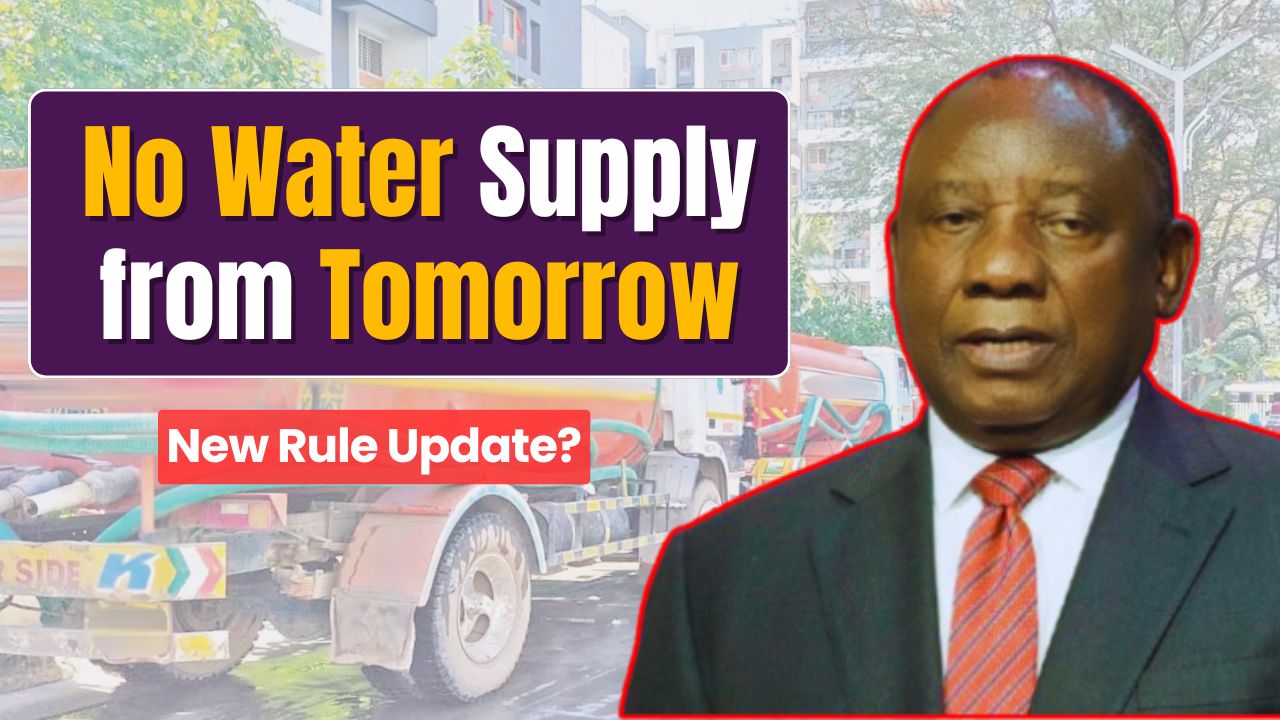In a dramatic move that has sparked concern across the country, the government has introduced a new regulation that could result in the suspension of water supply to thousands of households starting as early as tomorrow. The rule, aimed at enforcing stricter water conservation and billing compliance, has already triggered panic among citizens, particularly in urban and semi-urban areas.
What Is the New Rule?
The Ministry of Water Resources, in conjunction with local municipal bodies, has announced that households and commercial establishments that have failed to install functional water meters or have unpaid dues exceeding three months will face immediate disconnection. The rule, officially titled the Water Regulation and Compliance Directive 2025, aims to address rampant misuse, wastage, and revenue loss in the public water supply system.
According to officials, the decision was necessitated by severe water shortages and declining groundwater levels across several states.
Who Is Affected?
Estimates suggest that over 200,000 households could be impacted in the first phase of implementation. These include homes in both middle-income neighborhoods and lower-income urban settlements where compliance has historically been low due to affordability and awareness issues.
In areas like Delhi, Bengaluru, and Hyderabad, notices have already been served to non-compliant users. Residents in these regions have just 24 to 48 hours to act before their water connections are shut off.
Why Now?
A senior official from the Central Water Authority explained, “We are on the brink of a water crisis. Rivers are drying up, reservoirs are depleted, and urban consumption continues to rise. This rule is not about punishment it’s about survival.”
The government’s urgency also stems from recent climate reports predicting that India could face critical water stress by 2030 if drastic measures aren’t taken today.
Public Reaction
The public response has been mixed. While some have lauded the move as a much-needed wake-up call, others see it as abrupt and poorly implemented.
“I support the idea, but where was the awareness campaign? We found out through a WhatsApp group yesterday,” said Ramesh Gupta, a resident of East Delhi.
NGOs and civic activists argue that the decision disproportionately affects the poor, who may lack the means to install meters or clear long-standing dues.
What Can You Do?
Residents are being urged to take immediate action:
- Check for outstanding water bills and settle dues.
- Ensure your water meter is functional and registered with the local authority.
- Contact your local municipal body for compliance details.
Officials have also said that leniency may be given on a case-by-case basis, particularly for low-income families, if they come forward voluntarily.
The Bigger Picture
India’s water crisis has been worsening over the past decade. With shrinking water bodies, erratic rainfall patterns, and booming population growth, the need for sustainable water management is more pressing than ever.
Experts say the new rule, though controversial, could be a pivotal first step in reshaping the nation’s water usage habits if implemented with empathy and efficiency.
